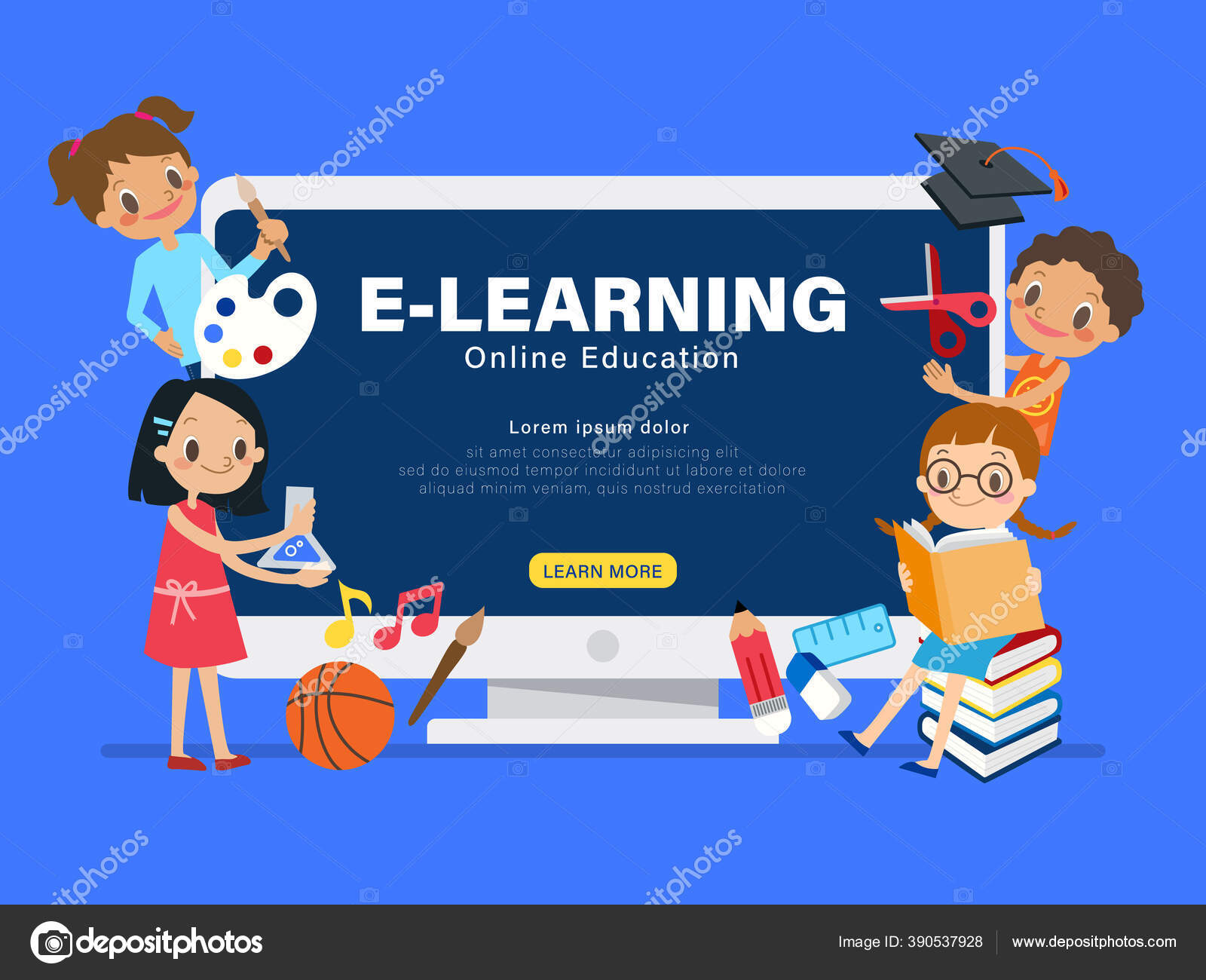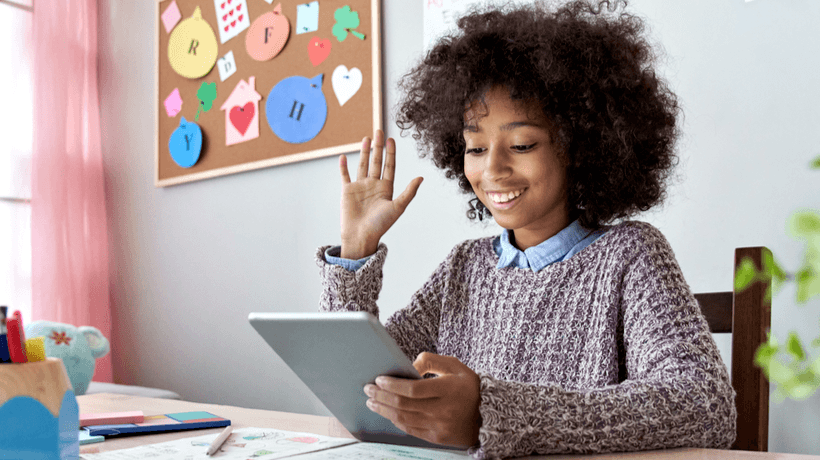The Advantages of E-Learning for Children: Enhancing Understanding and Skills
E-learning has actually arised as a transformative device in contemporary education, especially for youngsters, by using a customized and interesting means to improve their understanding and skill collections. The integral adaptability of e-learning allows trainees to progress at their own rate, accommodating varied knowing styles and schedules.

Personalized Discovering Experience
Among the significant advantages of e-learning for kids is the ability to supply an individualized knowing experience. This strategy tailors educational material to fulfill the specific demands, toughness, and pace of each student. Advanced data and formulas analytics are utilized to assess a child's efficiency and discovering style, consequently customizing lessons to optimize comprehension and retention.

In addition, tailored understanding cultivates a sense of possession and motivation in students. They are much more likely to engage deeply with the product when youngsters see that lessons are straight pertinent to their abilities and passions. This targeted technique not only improves scholastic efficiency however also builds self-confidence and promotes a lifelong love for learning, making e-learning an important tool in modern-day education and learning.
Interactive and Involving Material
Interactive and appealing web content is a cornerstone of effective e-learning for kids, transforming easy intake of info into an active academic experience. This kind of material makes use of a range of multimedia aspects such as animations, videos, and interactive simulations to mesmerize young students' interest. These tools not just make learning delightful however also improve comprehension by allowing children to picture complicated concepts in a much more absorbable manner.
In addition, gamification strategies like badges, problems, and tests add an aspect of enjoyable and competitors, inspiring pupils to engage regularly with the material. These interactive functions motivate involvement and promote a much deeper understanding, as pupils are not merely spectators however active individuals in their understanding trip. This interaction is vital for maintaining info and establishing critical thinking skills.
Additionally, interactive material can be customized to various learning styles, accommodating visual, acoustic, and kinesthetic students. As an example, acoustic students may gain from narrated lessons, while kinesthetic students can engage with drag-and-drop tasks. The versatility of interactive web content ensures that every kid can find out in a method that fits them best, thereby making best use of educational outcomes. This dynamic strategy to learning proactively entails trainees, making education extra reliable and delightful.
Flexibility and Convenience
E-learning for children uses unequaled adaptability and benefit, making education and learning easily accessible no matter of temporal or geographical constraints. This setting of finding out enables pupils to access educational products from anywhere with an internet link, read this post here removing the requirement for physical visibility in a typical classroom. Such flexibility is specifically valuable for family members who travel often or reside in remote areas with minimal academic sources.
The comfort of e-learning prolongs beyond physical location. It likewise permits for personalized learning timetables, allowing students to learn at their very own pace and at times that fit their personal routines.

Improved Crucial Assuming
A key benefit of e-learning for children is its potential to significantly boost important believing abilities. Unlike conventional class setups, e-learning platforms commonly include interactive aspects such as quizzes, analytical tasks, and simulations that call for pupils to actively engage with the material (Education and study for children and kids). These interactive components force students to examine info, evaluate proof, and make educated choices, therefore promoting essential reasoning
Moreover, e-learning atmospheres often supply personalized discovering courses. This personalization ensures that pupils run into challenges customized to their private skill levels, advertising deeper cognitive involvement. Adaptive discovering systems can determine areas where a student may struggle and offer targeted exercises to resolve these spaces, encouraging analytical idea this hyperlink and reflection.
In addition, the vast range of resources offered online enables trainees to check out subjects from numerous perspectives. Accessibility to varied sources of information enables them to compare and contrast various perspectives, enhancing their capability to critically review material. This direct exposure cultivates an analytical state of mind, triggering students to wonder about assumptions and develop well-reasoned debates.
Urging Collaboration and Creative Thinking
Structure on the improvement of vital thinking abilities, e-learning for youngsters also plays a considerable duty in cultivating collaboration and creative thinking. Digital platforms supply many tools that make it possible for students to collaborate on jobs, share ideas, and collectively solve issues. Online class and collective software program, such as Google Classroom and Microsoft Teams, facilitate real-time interactions and joint jobs, enabling youngsters to establish team effort skills necessary for future academic and professional settings.
E-learning environments boost imagination by using a wide variety of resources and interactive web content. Digital laboratories, creative software program applications, and multimedia tools enable youngsters to experiment, style, and create in ways typical class might not. Programs like Scratch and Tinkercad empower students to construct their very own video games and 3D models, respectively, supporting their imaginative capacities.
Additionally, the asynchronous nature of several e-learning platforms offers children the flexibility to discover subjects at their own pace, cultivating independent reasoning and development. This self-guided exploration is critical for developing an imaginative way of thinking. In summary, e-learning not just boosts academic expertise yet also grows vital abilities such as collaboration and imagination, hence preparing children for an interconnected and dynamic globe.
Verdict
E-learning dramatically enhances the instructional experience for youngsters by offering customized learning tailored to individual staminas and interests. Interactive and engaging content, integrating multimedia and gamification, advertises active involvement and pleasure. The flexibility of e-learning enables pupils to learn at their own rate, fostering critical reasoning, creativity, and important partnership skills. Ultimately, e-learning cultivates a love for discovering and gears up children with the necessary skills for future success.
The intrinsic versatility of e-learning enables pupils to proceed at their own speed, fitting diverse understanding designs and timetables. Unlike useful reference traditional class setups, e-learning systems typically include interactive aspects such as quizzes, analytical jobs, and simulations that need pupils to actively engage with the product.E-learning considerably boosts the academic experience for youngsters by providing customized discovering customized to specific toughness and interests. The flexibility of e-learning permits students to find out at their own speed, promoting critical thinking, creativity, and essential cooperation abilities. Ultimately, e-learning grows a love for discovering and furnishes children with the essential skills for future success.